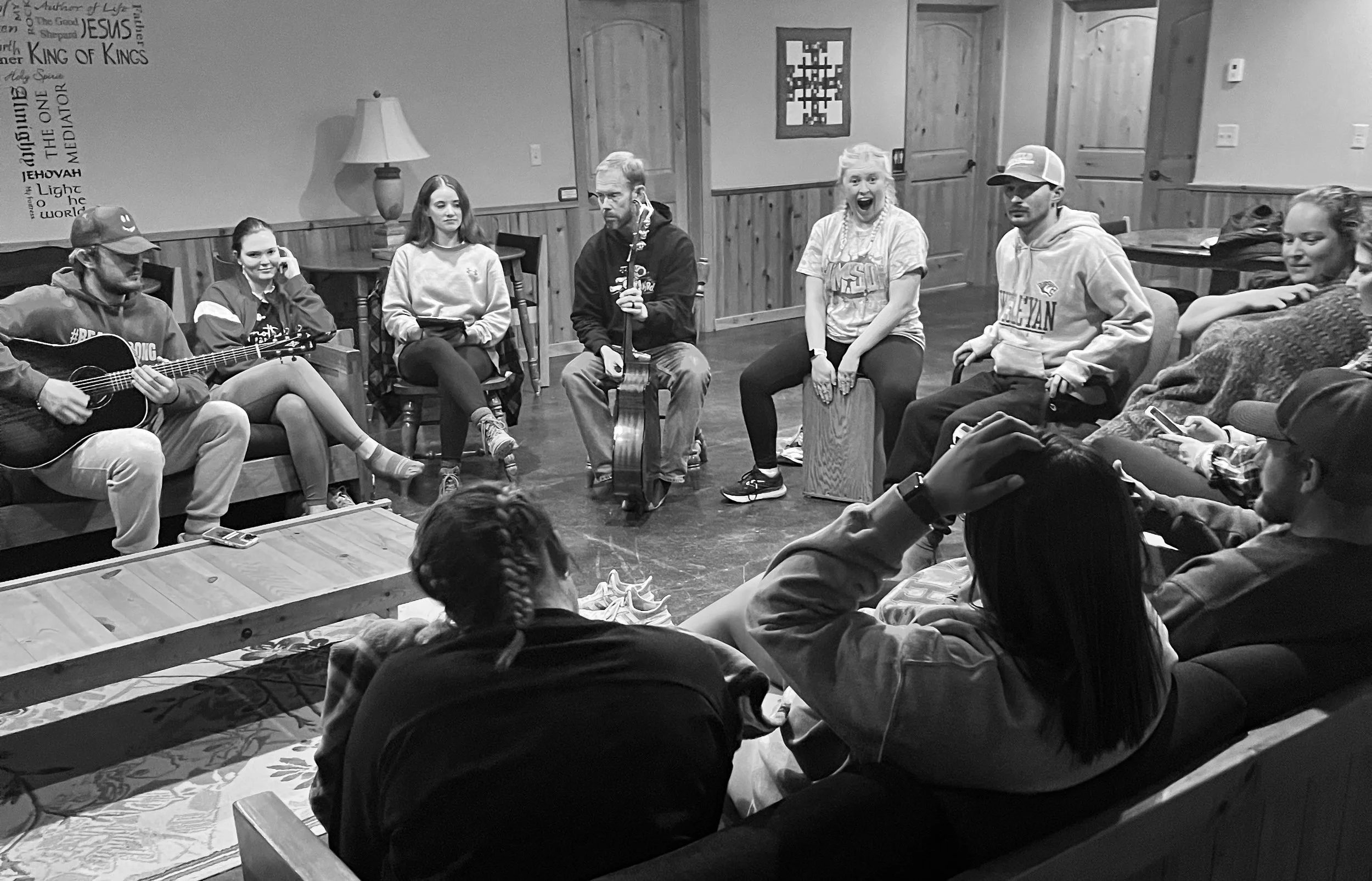Sing
If you asked me to name the most powerful and subversive thing the young adults in my congregation do, I would answer you in a heartbeat.
They sing.
I don’t mean the self-conscious, obligatory warbling that passes for singing in church or the unintelligible screaming of a concert crowd. I mean the full-body, every-voice-together, united-as-one song of a European soccer crowd or a real Irish pub—the kind of singing in which you abandon yourself to the communal emotion expressed in a song.
It’s not like Americans never do this. After national tragedies, crowds at sporting events will loudly sing “The Star Spangled Banner” or “God Bless America.” The revolution in worship music over the past two decades has produced plenty of songs worth belting out together. Baseball stadiums ring out with “Take Me Out the the Ballgame” in the seventh inning, which perhaps not coincidentally is last call for beer sales.
But these are not normal circumstances for most people. Karen Loew wrote beautifully for The Atlantic about the loss of song during times of joy or lament. A decade later, her insights feel even more true. We may occasionally be moved by a song, but rarely are we moved to sing.
I say rarely. That’s still more than never.
My weekly routine involves at least four instances of communal song. During our Sunday night leadership meetings, our living room shakes with the voices of college students singing contemporary worship music. Tuesday night’s gathering is smaller and more reserved, but Wednesday rehearsal and Thursday chapel routinely draw these young adults to sing with abandon.
And on the weeks that we offer Worship Under the Stars? It’s hard to overstate how good it feels to sing in that room, or how much it brings us together.
Music doesn’t just happen, of course. We have to choose songs that will create a common language for us—a process in which my fussiness causes no small amount of angst for my students. Someone has to play an instrument well enough to provide a framework, and it helps to have a couple of strong vocalists who can hold the tonal center for the less musical among us. Behind the scenes, our leaders do plenty of individual practice and collective rehearsing.
But singing among these friends is not a performance. We try to be excellent, but mistakes happen. People sing the wrong words or get out of time. We laugh it off and try again. After all, we aren’t trying to sell anything with our songs. We’re just inviting people to join the party—to step into a circle of fierce and expansive love, to grab onto a tenacious hope that refuses to let despair have the last word.
This is what heaven sounds like, I tell my students. Remember this.
They do remember, often with a sense of longing, whether realized or anticipated. When I ask people what they miss after they graduate, they almost always mention two interlinked things: community and music. By the time our seniors stare down their last few months at the campus ministry, they already see how rare these transcendent moments of song are in most places. They sing in a different way than those with time to spare. There are tears.
Of course there are tears.
How could there not be, with your heart so full and your mind already aware that these moments are fading?
I am no great vocalist myself, but over the years I’ve had to step in more than once to keep a song going while those with stronger voices wept. Others in the room do the same. At our fall retreat a few days ago, I needed people to sing hope for me. And they—we—did.
We sing for love, because we know we aren’t alone. We sing for courage, because we know what threatens us. We sing for hope, because we haven’t yet given up on goodness in this world.
We sing for one another. The songs carry us.

